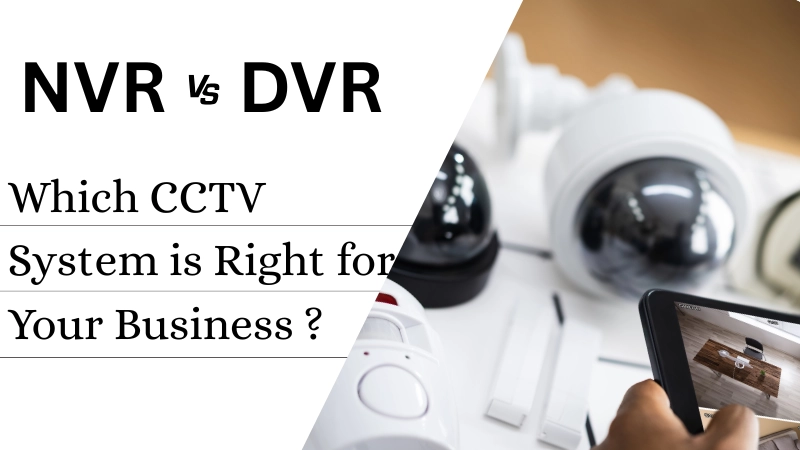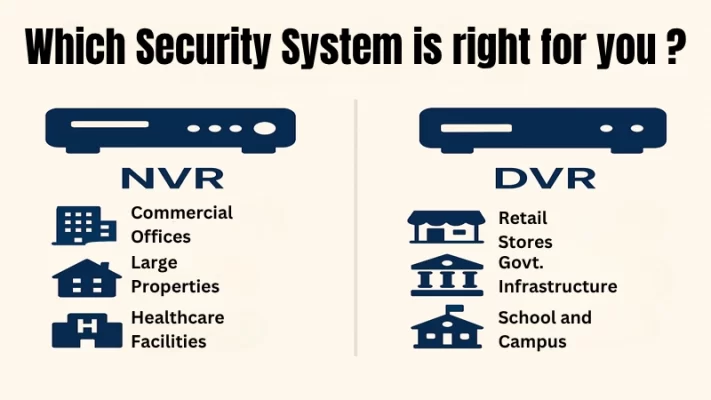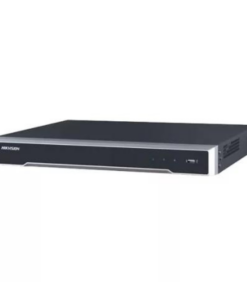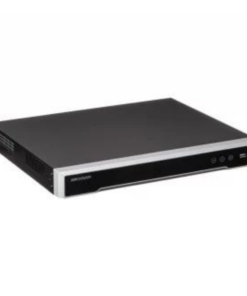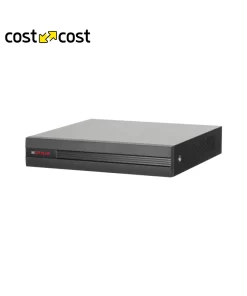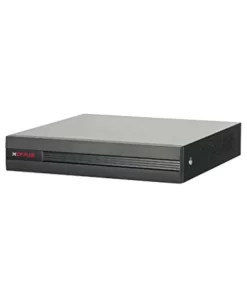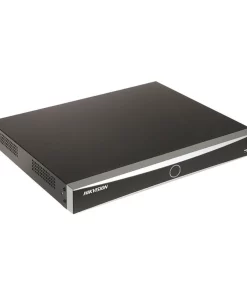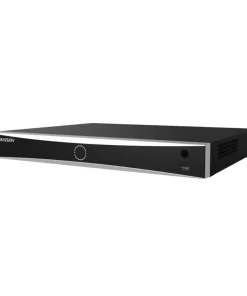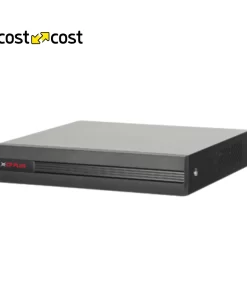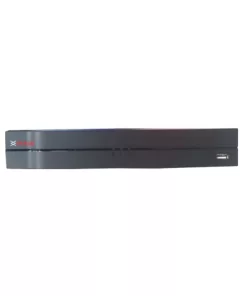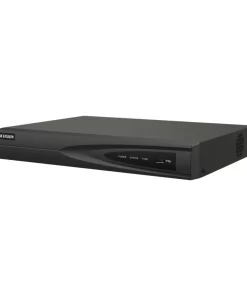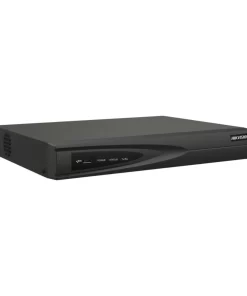Security
NVR vs DVR: Which CCTV System is Right for You?
You may be considering an Hikvision NVR 8 channel system at home or an 16 channel DVR system to run a warehouse, knowing the difference between DVR and NVR can assist you in making an informed and more dependable decision. In this piece we go through the major distinctions, advantages and disadvantages as well as the use-cases of DVRs for CCTV and. NVR camera systems to assist you in choosing the best one to meet the needs of your business.
What is an NVR Security System?
NVR (Network Video Recorder) system is a digital recorder that is specifically designed for use in conjunction with IP (Internet Protocol) cameras. These cameras can capture and edit video by themselves, and transfer the video via the network (Wi-Fi or Ethernet) to the NVR which is where it’s kept and controlled.
NVR systems are well-known for their versatility, high-definition video quality and their scalability. NVR systems are commonly utilized in settings for commercial use and also as smart security networks. The most popular brands such as Hikvision NVR provide a variety of choices, from Hikvision NVRs that have 8 channels that are ideal for small-sized businesses up to 16 channels NVRs for bigger facilities.
Key Features of NVR Systems:
- Compatible with IP cameras.
- Make use of Ethernet cables (Cat5/Cat6) or wireless networks.
- Provides remote access through websites or mobile applications
- Features advanced capabilities like Motion detection and video analytics as well as AI integration
- Higher resolution image (often 4K)
What is a DVR Security System?
The DVR (Digital Video Recorder) system is typically coupled with an analog CCTV camera. The cameras transfer raw video data via coaxial cables directly to the DVR where the video footage is processed before being saved. DVRs are typically used in older surveillance systems as well as in situations where cost-efficiency is the primary concern.
While they’re a less traditional alternative, DVR systems have seen advancements in resolution as well as remote capability for viewing. Companies such as Hikvision DVR continue to provide affordable and reliable surveillance options in the DVR CCTV class.
Key Features of DVR Systems:
- Compatible with cameras analog.
- Coaxial cables (BNC) to transmit video.
- Centralized video processing in the DVR unit.
- Low resolution in comparison with NVRs.
- The camera’s placement options are limited because of cable length and design.
Key Differences Between DVR and NVR Security Systems
Let’s break down the core differences between NVR vs DVR systems to help clarify which might be best for your setup:
| Feature | DVR System | NVR System |
| Camera Type | Analog cameras | IP (network) cameras |
| Video Processing | Processed at the DVR | Processed at the camera |
| Wiring | Coaxial (BNC) cables | Ethernet (Cat5/Cat6) or wireless |
| Image Quality | Standard to 1080p | HD up to 4K and beyond |
| Installation Flexibility | Limited by cable type and distance | Flexible; can be installed across networks |
| Audio Support | Usually requires separate audio cabling | Built-in support over Ethernet |
| Cost | More affordable for basic setups | Slightly higher upfront investment |
| Scalability & Integration | Less scalable, limited smart features | Highly scalable, supports smart analytics |
| Common Use Cases | Small offices, residential setups | Commercial spaces, smart homes, large facilities |
As seen above, while DVR in CCTV setups are simpler and more budget-friendly, NVR camera systems offer more advanced features and better flexibility for modern surveillance needs.
Pros and Cons of NVR and DVR Systems
If you’re it comes to comparing DVR and NVR Each has its own advantages and disadvantages. Below is a detailed breakdown of each for you to determine the one that best meets your needs:
Pros of NVR Systems
- Excellent video quality (up up to 4K)
- Allows remote viewing via apps or web
- Easy to grow or to upgrade
- Uses wireless cameras.
- Simple management of cables via the PoE (Power over Ethernet)
- Compatible with AI enabled capabilities
Pros of DVR Systems
- Cost-effective for the basic necessities
- A simple setup, and wires
- Compatible with all analog cameras.
- Proven and durable over the years.
Cons of DVR Systems
- Limited video resolution
- The more complicated wiring (coax and separate audio/power cables)
- Less flexible camera placement
- Support for smart features is limited.
If you’re looking into the purchase of a Hikvision Digital Video Recorder to use at home or in smaller shops, it’s a good value for money. In modern configurations, Hikvision’s NVR has 8 channels as well as 16 channels NVRs provide greater capacity. Also you can check out our CCTV Cameras from Hikvision and CP Plus.
Which Security System is Right for You?
The decision to choose between DVRs in the CCTV or an NVR camera system will depend on your house’s design, budget and your surveillance objectives. Below is a list of the most common areas:
Commercial Offices
NVR:- Offices are able to benefit from HD video Remote access, high-resolution footage, as well as the integration of an access control system.
Large Properties or Estates
NVR:- The range of wireless or long-distance IP camera positioning is perfect to cover large areas.
Healthcare Facilities
NVR:- Clinics and hospitals require a precise footage, as well as safe central management system. Hikvision NVR models that have smart alerts and 24 hour uptime are the optimally.
Retail Stores
DVR or NVR:- Small retail stores for small retail spaces, the Hikvision DVR solution is affordable. The larger stores could profit from NVR options like people-counting as well as intrusion detection.
Government and Critical Infrastructure
NVR:- High-security Hikvision NVR 16-channel systems provide secure storage, as well as the ability to support AI analytics that is essential to vulnerable locations.
Warehouse and Manufacturing Facilities
Warehouses require a wide-ranging coverage as well as intelligent motion alerts. NVRs can be integrated with sensors, real-time monitoring.
Schools and Campuses
NVR:- To ensure safety and conformity Schools can benefit from NVR installations that incorporate facial recognition, zone monitoring and cloud backup solutions.
To understand how NVR and DVR systems fit into the bigger picture, see our ultimate CCTV Buyer’s Guide 2025. It explores CCTV trends, camera types, and expert tips for selecting the right surveillance system.
Checkout our NVR and DVR Camera Systems
Office Security Systems
Hikvision DS-7608NI-Q2/8P – 8 Channel 4K Network Video Recorder wi
Office Security Systems
CP PLUS 4 Channel 2MP DVR CP-UVR-0401E1-CS
Office Security Systems
Hikvision DS-7608NXI-K2/8P 8-Channel 4K NVR with PoE & AI Analy
Office Security Systems
CP PLUS 16 Channel 5MP DVR CP-UVR-1601F1-IC
Office Security Systems
CP PLUS 8 Channel H.265 8 PoE NVR
Office Security Systems
Hikvision NVR 8 Channel DS-7608NI-Q1 IU 4K with PoE, H.265+, HDMI/VG
Conclusion
If you are comparing DVR and NVR devices, your choice is based on your security preferences along with your budget, as well as longer-term plans. DVR solutions are great for small-scale installations when budgetary concerns are a factor as well as basic coverage that is sufficient. However, NVR camera systems best suited to flexible, future-proof, and high-resolution security — especially for campuses, businesses and other critical locations.
If you decide to go with a Hikvision NVR 8 channel set-up for an office of medium size or Hikvision DVR to your store that is small for your small store, both will give you assurance of security if implemented properly. Visit Cost to Cost Trading for best IT Products in Dubai, Sharjah and Abu Dhabi.
Frequently Asked Questions
The key difference is how video is processed. DVRs process footage at the recorder using analog cameras, while NVRs use IP cameras and process video at the camera itself before sending it to the recorder.
Yes, in terms of image quality, flexibility, and advanced features, NVRs outperform DVRs. However, DVRs are more budget-friendly for simpler setups.
Yes, NVRs can function without internet for local recording and playback. Internet is only needed for remote access and cloud features.
Hikvision’s 8 or 16 channel NVRs support high-resolution video, remote monitoring, motion detection, and easy integration with other smart security systems.
Yes, but it may require replacing your analog cameras with IP cameras and adjusting the cabling (coaxial to Ethernet).


























































